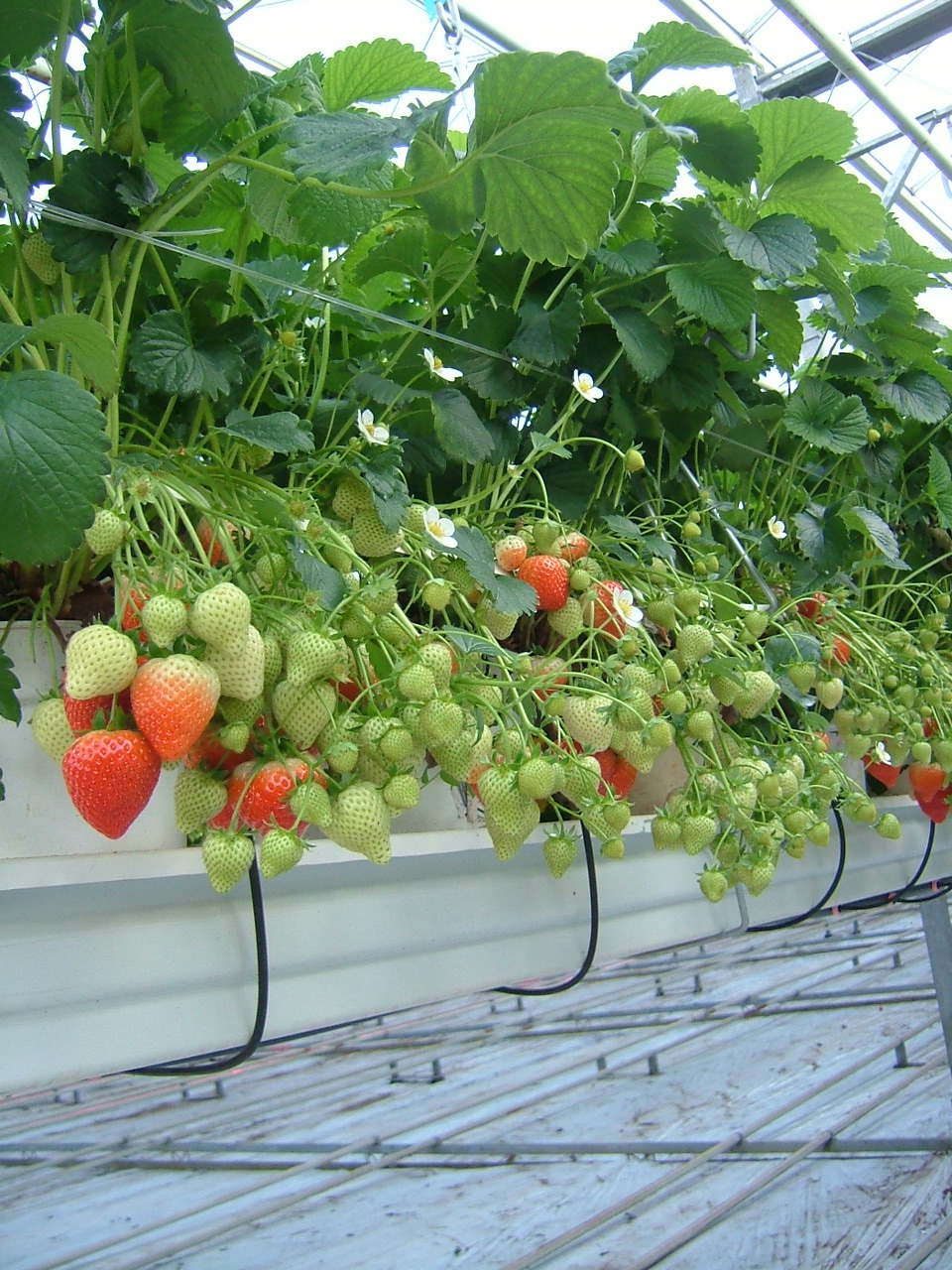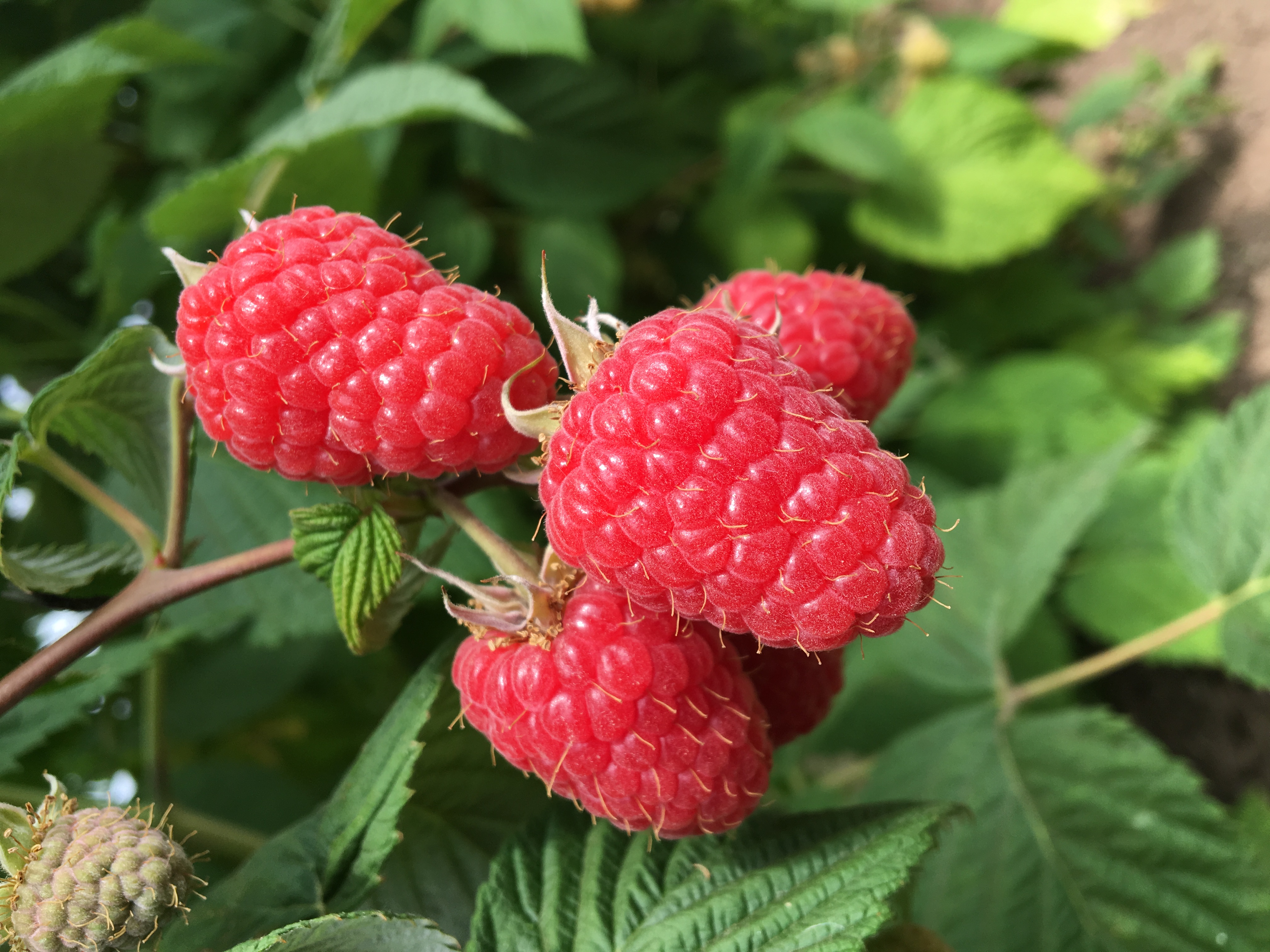Please click here to access the main AHDB website and other sectors.
- Home
- Soft fruit breeding and genetics
Soft fruit breeding and genetics
By funding breeding and genetics AHDB is investing in the future of the fruit industry. AHDB sees supporting breeding as a long-term strategy to support IPM, decrease labour costs and improve fruit quality.
AHDB has committed funding to two soft fruit breeding programmes, East Malling Strawberry Breeding Club and UK Raspberry Breeding Consortium. By being a member of these breeding groups, we can ensures all the varieties which are released from these programmes are ‘open’ and available to all UK growers. Our involvement also ensures that the breeding objectives remain relevant to UK production and the varieties are suited to the British climate.
Strawberry
East Malling Strawberry Breeding Club (EMSBC) SF 096a
The strawberry breeding at NIAB EMR is funded via the East Malling Strawberry Breeding Club (EMSBC).
The EMSBC aims to continue to deliver new, improved varieties to help growers meet the challenges of modern production. These are being achieved by specific objectives which are reviewed annually by the EMSBC Board, but broadly the club aims to:
- Reduce waste and the use of plant protection products by developing plants with improved disease resistance
- Provide season long superior quality fruit by breeding outstanding June-bearer and everbearer strawberry varieties
- Reduce production costs by producing high-yielding cultivars with large, well-presented fruit, good shelf life and high percentage Class 1 fruit
Achieving these aims is accelerated by the innovative science at NIAB EMR which enables the breeders to combine scientific knowledge of yield and quality with the development of molecular markers and an understanding of pest and disease control methods whilst also focusing on reduced growing costs.
The EMSBC is a leading strawberry breeding programme with its MallingTM Centenary variety accounting for 60-70% of the UK strawberry market. MallingTM Centenary has become the UK industry standard June-bearer, with sales in 2017/18 exceeding 50 million plants. The popularity of MallingTM Centenary is due in part to cheaper production costs. Growers made savings of approximately £6k/ha due to reductions in waste and reduced picking costs that are attributable to better fruit display and fruit size, a higher % of Class 1 fruit (>95%) and a slightly earlier season compared to the previous industry standard Elsanta. Growers also benefitted from picking speeds which were 1.8x faster for MallingTM Centenary compared to Vibrant.
Two other recent releases which complement the season of Malling Centenary are Malling Allure which has a useful level of resistance to powdery mildew and Malling Champion which is resistant to crown rot and Verticillium wilt and shows moderate resistance to powdery mildew. New varieties are in the pipeline, offering further benefits in terms of disease resistance and consistent yield profile thereby reducing waste and the use of pesticides.

Raspberry
UK Raspberry Breeding Consortium (RBC): Investing for the future SF 035c
AHDB contributes funding towards the Raspberry Breeding Consortium (RBC) which is managed by James Hutton Limited.
The purpose of the RBC is to create new and improved raspberry varieties. To do this, the RBC benefits from allied multi-disciplinary science at the James Hutton Institute which enables the breeders to combine scientific knowledge of pest and disease control, with the development of molecular markers and an understanding of fruit quality whilst also focusing on reduced production costs.
The RBC was developed to ensure the UK raspberry industry can evolve in line with modern growing and production systems as well as consumer tastes and trends. The specific breeding objectives of the RBC are reviewed annually by the RBC Board, which includes representation from the AHDB, but broadly the aims are to:
- Improve the sustainability of new varieties by developing durable pest and disease resistance thereby reducing waste and the use of pesticides
- Increase productivity, picking efficiency and fruit quality, especially shelf-life
- Develop berries with superior flavour
- Extend the cropping season in the UK i.e. beyond the traditional summer production to displace imports
- Shorten the timescale of the breeding process by inclusion of new genetic markers
- Develop environmentally resilient varieties to optimise production for current and future climatic conditions
The RBC has released five cultivars since 2015, including ‘Glen Mor’, which was released in 2020 and is the first fresh market raspberry released with resistance to root rot.
Previously AHDB projects related to this work include 'The UK raspberry breeding programme' (SF 035b) and the 'Summer fruiting raspberry variety trial' (SF 041d).

Find out more about the latest news and research from soft fruit

